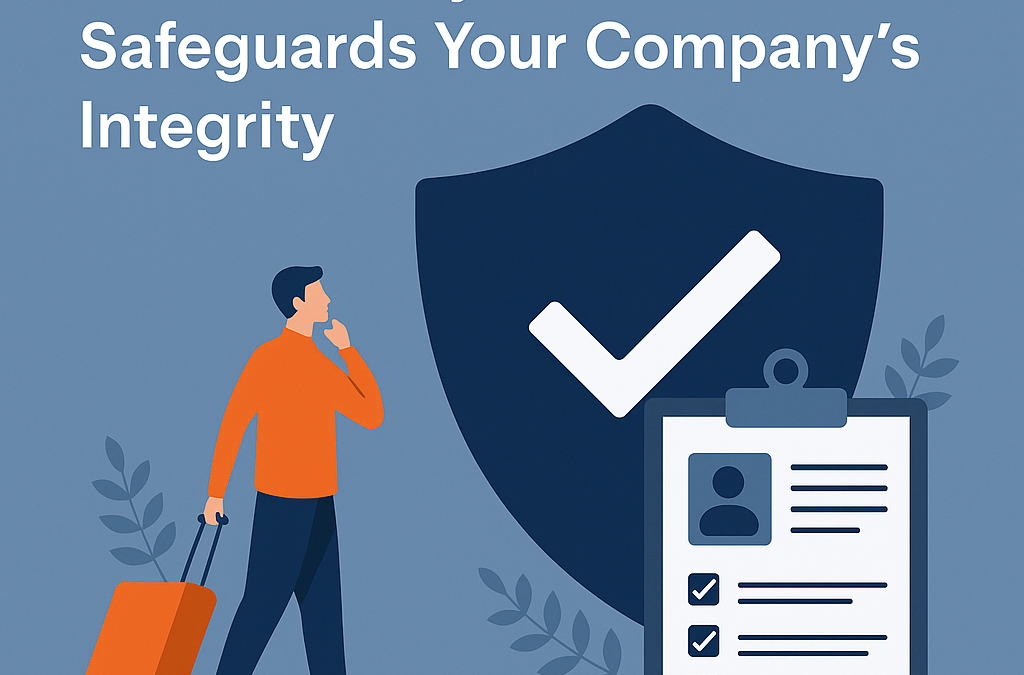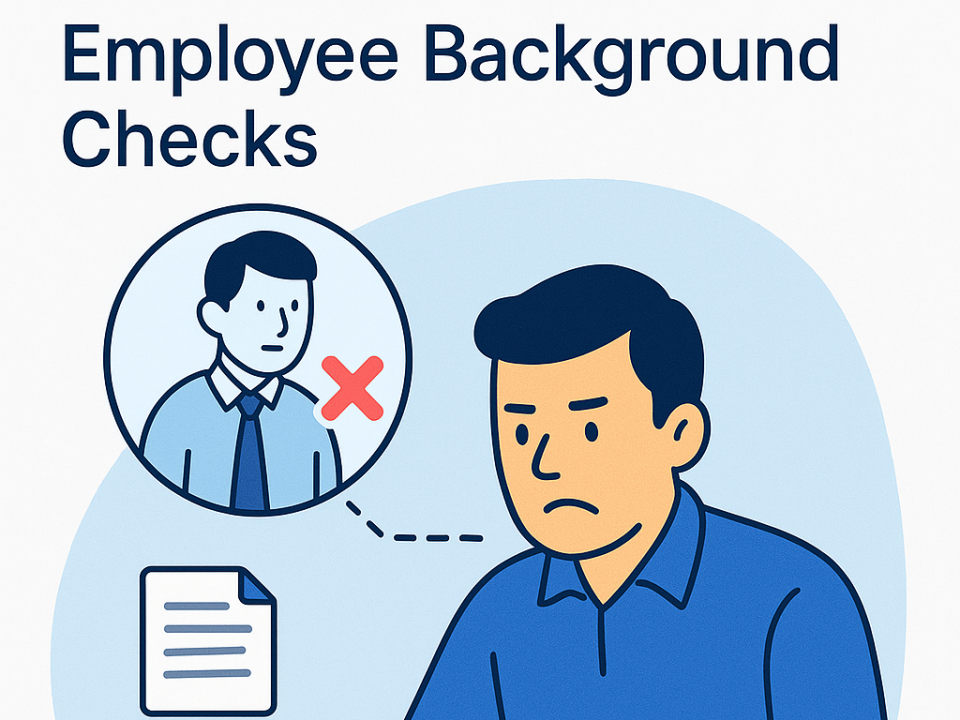Maintain Integrity: Rotate Your Background Verification Partner Regularly
Published – 19th April 2025– 2 Minute Read.
In today’s highly regulated and fast-evolving business environment, the importance of background verification (BGV) cannot be overstated. A strong BGV program protects companies against financial loss, reputational damage, regulatory fines, and internal misconduct. However, many organizations make the mistake of treating background verification as a “set and forget” function, sticking with the same vendor for years without review.
As a compliance expert, I advocate for reassessing — and often changing — your background verification partner every two years. Here’s why this practice is essential for protecting your organization’s integrity and safeguarding the verification process.
1. Combatting Vendor Complacency
Over time, long-term vendor relationships can lead to operational complacency. Familiarity may result in less rigorous investigations, inconsistent quality checks, and an overall decline in due diligence standards. By rotating partners, organizations maintain the pressure for high performance, ensuring that no partner becomes too comfortable or negligent with your company’s most sensitive hiring processes.
Fresh eyes bring renewed rigor to your verification procedures, catching gaps or errors that an incumbent provider might overlook.
2. Adapting to Evolving Regulatory Standards
Compliance standards, data privacy laws, and background verification methodologies are constantly evolving — often rapidly. A BGV partner that was compliant and cutting-edge two years ago may now be outdated or non-compliant with the latest regulations like GDPR, DPDP (India), or industry-specific guidelines.
Regularly reassessing and changing partners ensures your BGV program stays current, aligning with the latest:
-
Legal and regulatory requirements
-
Best practices in data security
-
Ethical standards in background screening
It protects your organization from regulatory penalties and reputational damage stemming from non-compliance.
3. Reducing the Risk of Collusion and Bias
When a single BGV partner works with your organization for an extended period, there is an increased risk — albeit small — of collusion, favoritism, or conflicts of interest. This is particularly true if the same vendor is handling high-profile or sensitive employee verifications.
Periodic changes introduce a necessary level of independence and objectivity into the process. New vendors review records, credentials, and histories without prior bias, ensuring that checks remain transparent, impartial, and trustworthy.
4. Exploring Innovations and Better Pricing
The BGV industry is highly dynamic, with constant technological advancements such as:
-
AI-driven verification tools
-
Blockchain-secured record authentication
-
Advanced global database integrations
Changing your verification partner allows you to benefit from innovations that your incumbent vendor might not offer. You may also discover more competitive pricing structures or better value-added services like faster turnaround times, more detailed reports, or customized compliance solutions.
5. Strengthening Your Overall Risk Management Framework
Ultimately, rotating your background verification partner strengthens your organization’s broader risk management and governance structure. It shows that your company:
-
Actively mitigates risks
-
Seeks continuous improvement
-
Demands accountability from third-party service providers
This proactive approach can be a differentiator when audited, assessed for mergers and acquisitions, or scrutinized by clients and investors.
Conclusion
Changing your background verification partner every two years is not about distrusting your vendors; it is about prioritizing your company’s integrity, compliance, and resilience. In a world where corporate missteps are amplified and penalized more than ever, protecting your organization’s hiring processes through regular vendor rotation is a smart, strategic move.
Safeguard your future by keeping your verification process as dynamic and secure as the world you operate in.




